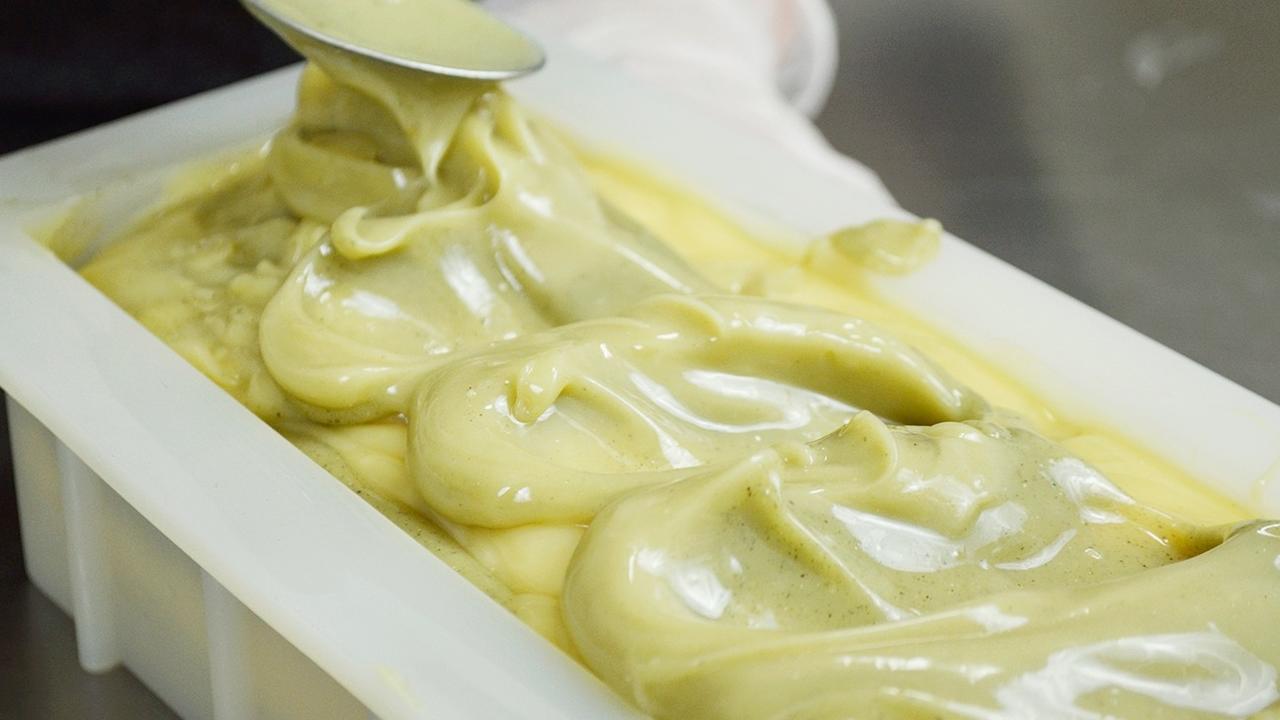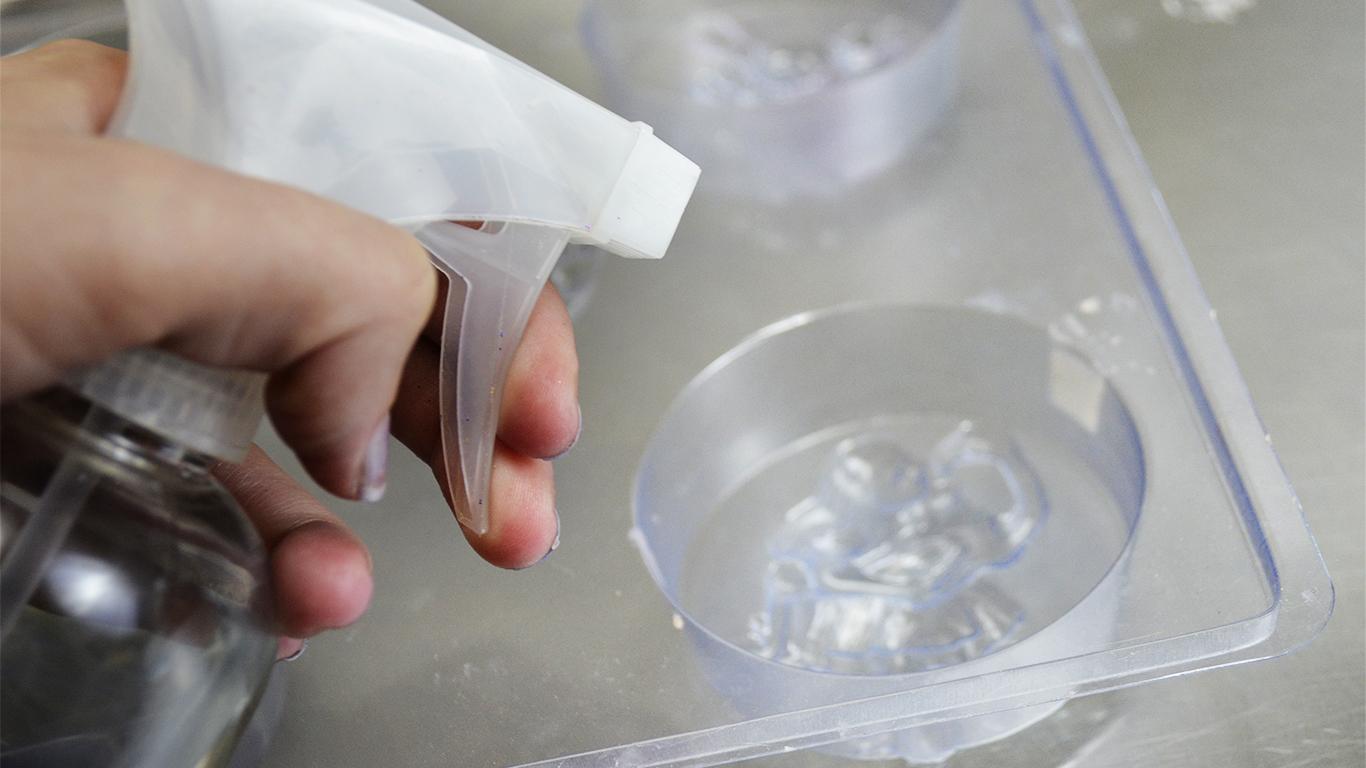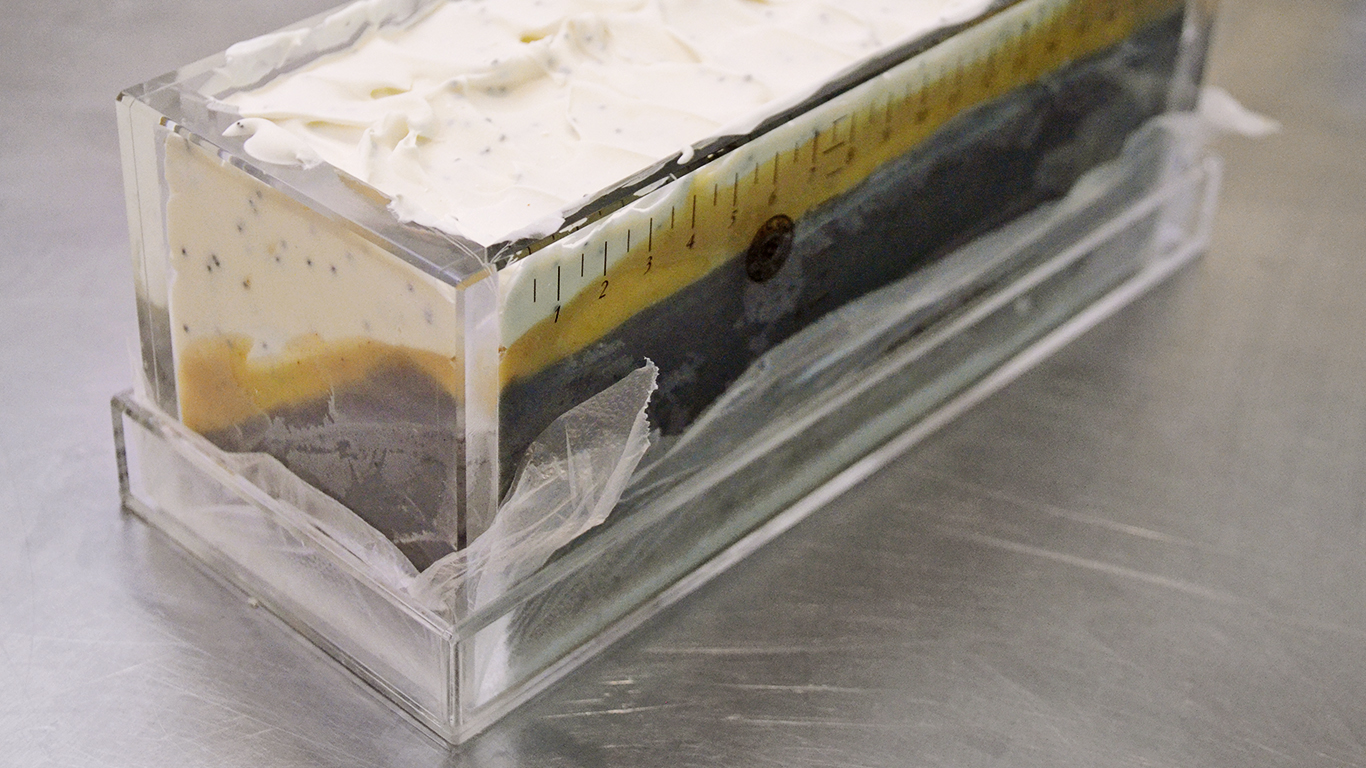What Are the Best Soap Molds for Every Level?

When you get bitten by the soapmaking bug, just about *everything* starts to look like a potential mold. However, with experience, you narrow down what kind of soap mold works best for you. Whether you are a hobbyist, a teacher, or a soap business owner looking to scale up, this list of pros and cons of different types of soap molds will help.

The Best Soap Molds For a New Soaper
As a beginner soapmaker, the best soap molds for you will likely be a variety of food containers. If you are new to soapmaking, you probably don't want to invest a lot of money on fancy soap molds! Repurpose used waxed paper milk cartons, plastic yogurt containers, and more. Popular soap molds for new soapmakers are disposable plastic food storage containers and lined Pringles canisters.
 Using food containers for soapmaking molds is a great way for beginners to get started.
Using food containers for soapmaking molds is a great way for beginners to get started.
When reusing a food container for soapmaking, ensure that it does not have aluminum (it will react with the soap). If you need to line a mold, you can use a variety of materials like freezer paper, plastic bags (grocery bags, trash bags, etc.), and wax paper. It should go without saying, but make sure you thoroughly clean the container before using it as a soap mold.
The benefit to re-using food containers is that they can be inexpensive or even free, and somewhat disposable. But, be aware that you will find an inconsistency in the sizes of your finished soap, which can affect the way you feel about a particular formula's performance.
If you are teaching a soapmaking class, these containers are great for students as they are inexpensive and can be taken home!
Food Container Suppliers
- Re-use any food containers that meet the guidelines.
- Snag disposable containers, deli containers, and the like from your local grocery store or restaurant supply.
The Best Soap Molds For a Hobby Soapmaker
If you fall in love with soapmaking and want to invest in molds for your soapmaking, there are a wide variety of types to choose from. Each type of mold has its own benefits and drawbacks, and I hugely recommend trying them all to find what works best for you!
(Don't miss our article on resizing your soap recipe to fit any mold!)
Plastic Soap Molds
Plastic molds are commonly available for usage for melt and pour soap, but they can also be used for cold process soap. They are typically cavity molds with cute shapes and designs, meaning it is not necessary to cut the soap after removing it from the mold. However, these molds often bend or break when trying to remove the soap from the mold.
 Individual cavity plastic soap molds can give you fun options and unique shapes.
Individual cavity plastic soap molds can give you fun options and unique shapes.
You can ease the release of the soap from the mold by spraying the mold with mineral oil or cosmetic silicone (Cyclomethicone or dimethicone) as these materials do not saponify and create a barrier between the soap and the mold.
Plastic Soap Mold Suppliers
- Wholesale Supplies Plus (USA)
- Bramble Berry (USA)
- Aztec International Inc. (USA)
- All Australian Candlemaking (Austalia)
- Candora Soap and Soapmaking Supplies (Canada)
- Soapmakers Store (United Kingdom)
Wood Soap Molds
The most affordable and customizable mold choice for hobbyist soapmakers are wood molds, as they are cheap to make or acquire compared to other mold types and can be built in a variety of configurations (loaf, slab, block, etc.)
However, wood molds must be lined with a material that will not stick to cold process soap, such as freezer paper (shiny side facing the soap), corrugated plastic (yard sign material), and more. Wood molds are the best for insulating cold process soap, encouraging quicker saponification through gel phase.
 You can build my adjustable width wood soap molds with our tutorial!
You can build my adjustable width wood soap molds with our tutorial!
If you decide to build your own wood soap molds or purchase them from someone, ensure the molds are not made with glue or treated wood if you want to cold process oven process your soap.
When built properly and taken care of properly, wood molds can last a soapmaker forever.
Wooden Soap Mold Suppliers
- Bramble Berry (USA)
- Nurture Soap Supplies (USA)
- Candles and Woodcrafts (USA)
- The Soap Kitchen (United Kingdom)
- Winston & Walter Artisanal Products (Canada)
- Aussie Soap Supplies (West Australia)
HDPE, PVC, and Acrylic Soap Molds
Another option is HDPE plastic molds. These molds are typically built similarly to wood molds in both loaf and slab configurations. Depending on your formula, you may not need to line an HDPE mold, but if your formula does not gel, or is high in soft oils, you will need to line your mold using freezer paper, wax paper, or corrugated plastic. You can also spray the molds with mineral oil or cosmetic silicones, instead.
 My Uber Kate Mold from Soap Hutch is an HDPE soap mold (and I adore it).
My Uber Kate Mold from Soap Hutch is an HDPE soap mold (and I adore it).
When unmolding soap from an HDPE mold, you need to slide the soap off the mold, parallel to the mold surface, rather than pull the soap away from the mold perpendicularly as you would with a liner in a wood mold or the walls of a silicone mold.
PVC pipe soap molds are commonly used for puck soaps and have a lot of similar features to HDPE molds. They are heat sensitive and may or may not need to be lined. However, PVC pipes are typically very affordable at local home improvement stores.
 When using PVC soap molds, I like to line my soap mold with some freezer paper and cover the end with plastic wrap before adding the end cap.
When using PVC soap molds, I like to line my soap mold with some freezer paper and cover the end with plastic wrap before adding the end cap.
You will need some kind of end cap for PVC pipe mold. You can purchase an end cap meant for PVC pipe, but you will want to line that to make it easier to remove the soap after it saponifies.
When unmolding soap from PVC pipes, you want an object that fits inside the pipe to help push the soap out. A standard empty wine bottle, with the flat side toward the soap, helps. Some soapmakers use a smaller PVC pipe with an end cap or build a wooden pusher out of a dowel.
Acrylic molds are similar to HDPE molds in their durability, price point, and usage. However, they have the neat extra feature of being able to see the soap inside the mold through the mold walls. If you enjoy creating intricate soap designs, acrylic molds are the perfect match for you.
 These acrylic soap molds are from Japan, and I love how you can see inside of the soapmaking mold as you work.
These acrylic soap molds are from Japan, and I love how you can see inside of the soapmaking mold as you work.
Both acrylic and HDPE molds are sensitive to heat, so it's not advisable to use them for cold process oven process soapmaking.
HDPE, PVC, and Acrylic Soap Mold Suppliers
- Soap Hutch (USA)
- For Craft's Sake (USA)
- Cumberland Acoustic (USA)
- SoapEquipment.com (USA)
Silicone Soap Molds
The most common soapmaking mold choice nowadays is typically silicone molds. Silicone has the advantage of having a clean corner on your soap due to the ease of unmolding. Typically, you do not need to line silicone molds whatsoever.
Silicone is the worst of the mold types for insulation purposes, but it is typically heat resistant to high temperatures, allowing you to use the cold process oven process method.
![]() Silicone soap molds have many advantages, but most people don't realize they have some disadvantages, too!
Silicone soap molds have many advantages, but most people don't realize they have some disadvantages, too!
Silicone molds come in a variety of configurations: one-piece molds that are standalone, silicone liners that need a supporting box, and smaller individual cavity molds for unique shapes and sizes.
Be aware that silicone molds are not indestructible! Silicone stretches over time and will "grow" beyond the size it started out at. As the silicone stretches, it becomes prone to tearing as well.
Silicone Soap Mold Suppliers
- Bramble Berry (USA)
- Nurture Soap Supplies (USA)
- Wholesale Supplies Plus (USA)
- Candle and Supplies (USA)
- Little Green Workshops (Australia)
- Canwax (Canada)
- Aussie Soap Supplies (West Australia)
The Best Soap Molds For a Soap Business Owner
When it comes to operating a soap business, efficient production becomes the top priority which means creating the most soap at one time while still ending up with a great (and consistent) bar of soap.
There are a lot of options here that are just larger sizes of the previous mold types, but the investment really varies. From HDPE block molds to DIY wood slabs and even custom silicone liners, the options are endless.
 Production soapmaking molds come in all sorts of materials, so you are free to choose what works best for you.
Production soapmaking molds come in all sorts of materials, so you are free to choose what works best for you.
When you are looking to scale up your business, there are a lot of considerations to keep in mind. Luckily, I've been there and done that, and wrote all about it in our guide to production soapmaking.
Where are you at in your soaping journey and what is your favorite soap mold? Sound off in the comments below!
A note about suppliers: We've listed some of our favorite sources for the best soap molds for every level of soapmaker, but these are simply suggestions! There are a TON of options out there. We are not affiliated with or compensated by any of the listed suppliers.
Want to snag weekly advice on building a successful soap biz directly in your inbox?
Of course you do! Sign up for our newsletter below for more tips and tricks to make bank in your biz.

